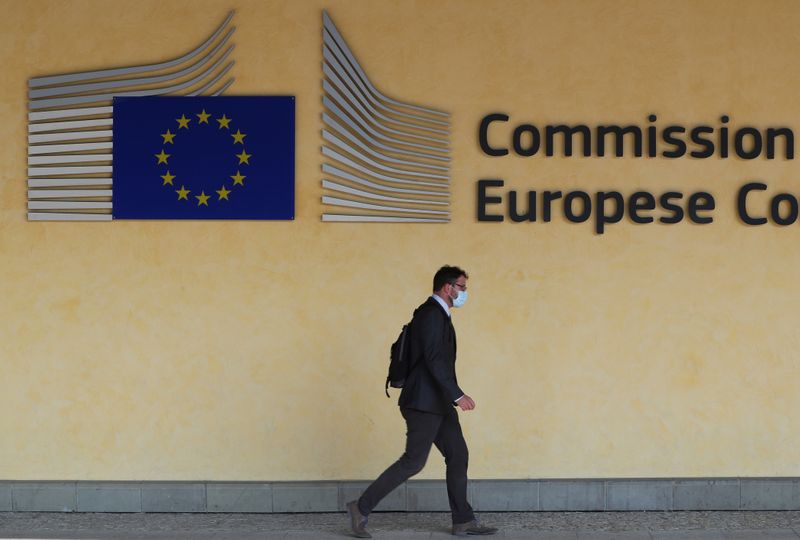By Huw Jones
LONDON (Reuters) - The European Union on Thursday presented plans to expand and bolster its capital market to help reboot companies hit by the coronavirus and reduce the bloc's reliance on the City of London after Brexit.
Companies need to refund themselves as they emerge from recession caused by pandemic lockdowns, with Brussels wanting them to use stock and bond markets and reduce reliance on bank loans.
The plans would help give the EU market "strategic autonomy" when Britain exits the bloc's single market on Dec. 31, the EU launch documents said.
Digital finance forms a core plank of the bloc's third batch of measures in five years to create a Capital Markets Union (CMU) by including what EU officials describe as the world's most comprehensive set of rules for cryptoassets.
"The strength of our economic recovery will depend crucially on how well our capital markets function and whether people and businesses can access the investment opportunities and market financing they need," the EU's financial services chief Valdis Dombrovskis said in a statement.
European Commission officials say top political support will be needed to push through the reforms after patchy success with previous attempts at building the CMU.
"There is a lack of vision for CMU on where we want to get to in 10 years' time, and on how to consolidate the hopelessly fragmented and expensive investment funds market," said Karel Lannoo, chief executive of Brussels think-tank CEPS.
Pablo Portugal, managing director for advocacy at banking and markets industry body AFME said it was time that policymakers delivered on CMU.
The collapse of German payments company Wirecard has raised questions about supervision. The CMU plans stop short of calling for a single markets supervisor, but stresses the need for more convergence.
"It is an essential condition for a well-functioning CMU. This will be particularly relevant in a post-Brexit world with multiple financial centres across the EU," it said.

The plans include the first set of rules specifically for supervising providers of cloud computer based services as banks outsource more and more critical information technology.